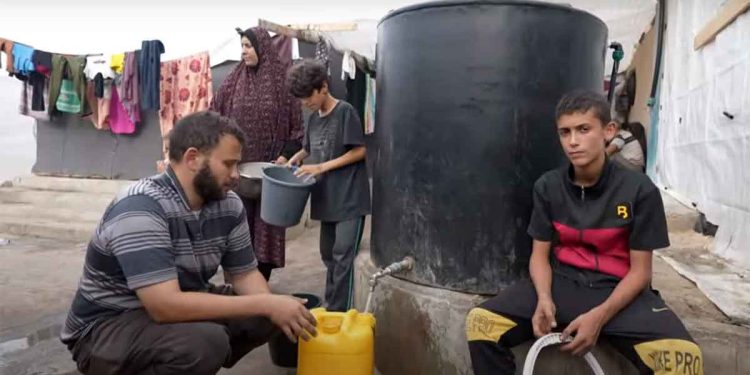Food systems in Gaza are collapsing, and the food aid entering the enclave is barely 10 percent of the amount needed for the 2.2 million people there.
The warning comes from the World Food Programme (WFP) which says Gazans are not getting enough to eat, making them more susceptible to diseases that can be easily spread.
“The situation on the ground is alarming,” Alia Zaki, spokesperson for the UN World Food Program’s Palestine office in Jerusalem, told Arab News.
“Existing food systems are collapsing. The last bakery that WFP has been working with has shut down because it has no fuel or gas.”
Bread, a staple of the Palestinian diet, has become increasingly scarce since the conflict began due to a lack of key ingredients, including clean water and wheat flour.
“Some bakeries have also been hit by air strikes,” said Zaki. “People are risking their lives and queuing for hours to get bread for their families, and many times are coming back empty-handed.”
The WFP has been closely monitoring the availability of food in shops since the outset of the war. The majority of businesses it had been collaborating with report shortages of essential items. Non-essential food products that do not fulfill nutritional needs, and those that cannot be consumed without cooking, are also rapidly dwindling.
“Shelves are nearly empty. Hunger is spreading in Gaza, and cases of dehydration and malnutrition are increasing rapidly,” said Zaki.
Since October 7; the Israeli occupation army has waged a bloody war on the Gaza Strip, which has left 11,500 Palestinians killed, including 4,710 children and 3,160 women, as well as 29,800 injured, 70 percent of whom are children and women.
In order to stop this terrible war, the international community must compel the Israeli occupation to uphold international humanitarian law, human rights treaties, and the rights and lives of civilians. It must also forbid targeting civilians, ensure their safety, and hold those in charge accountable.






























